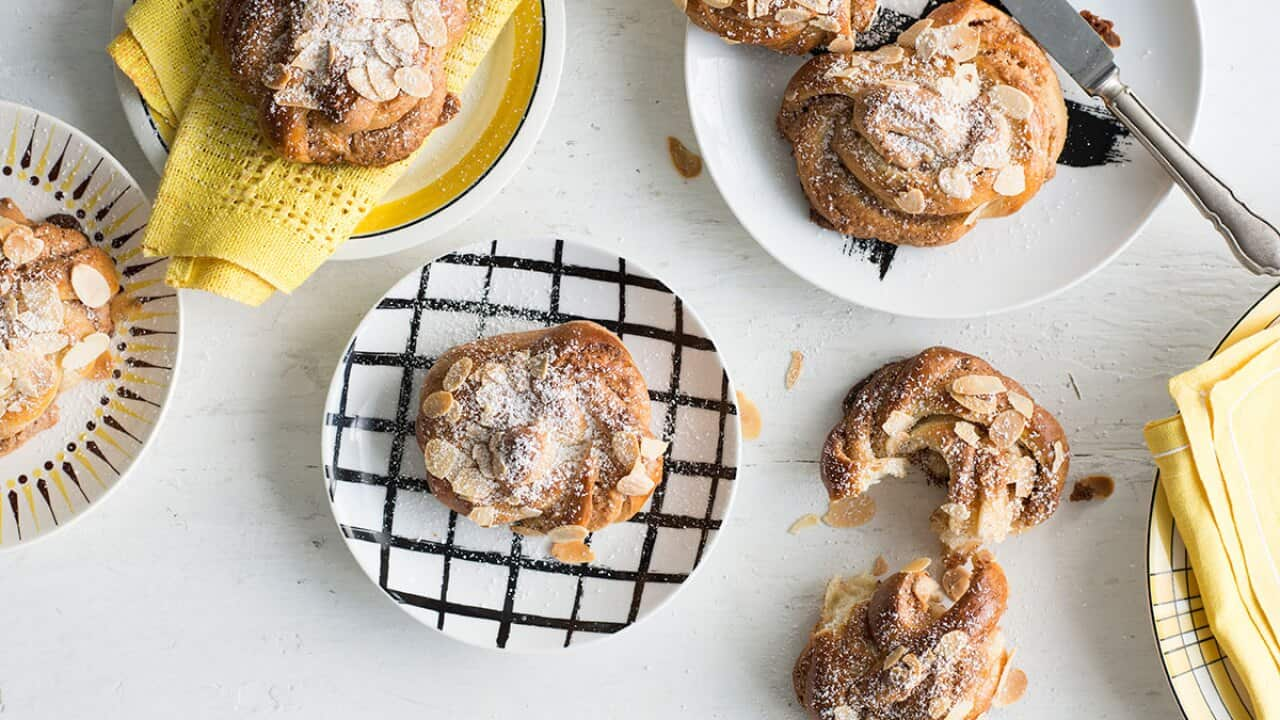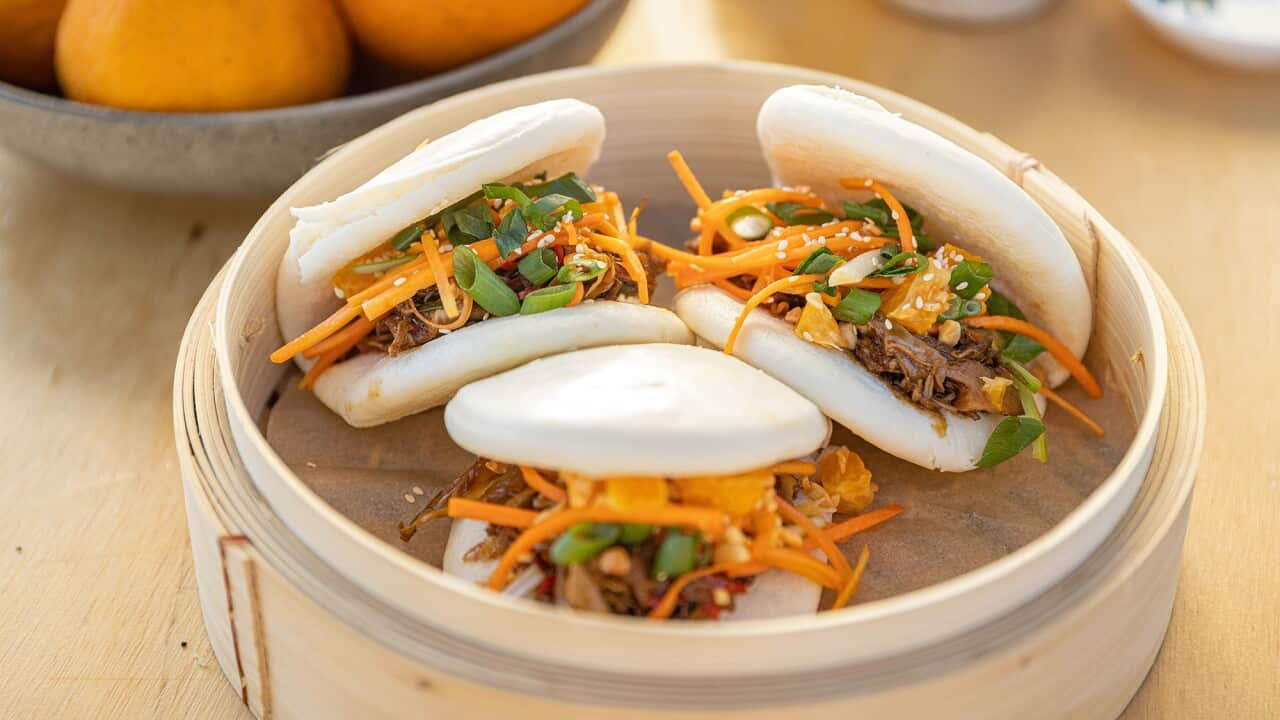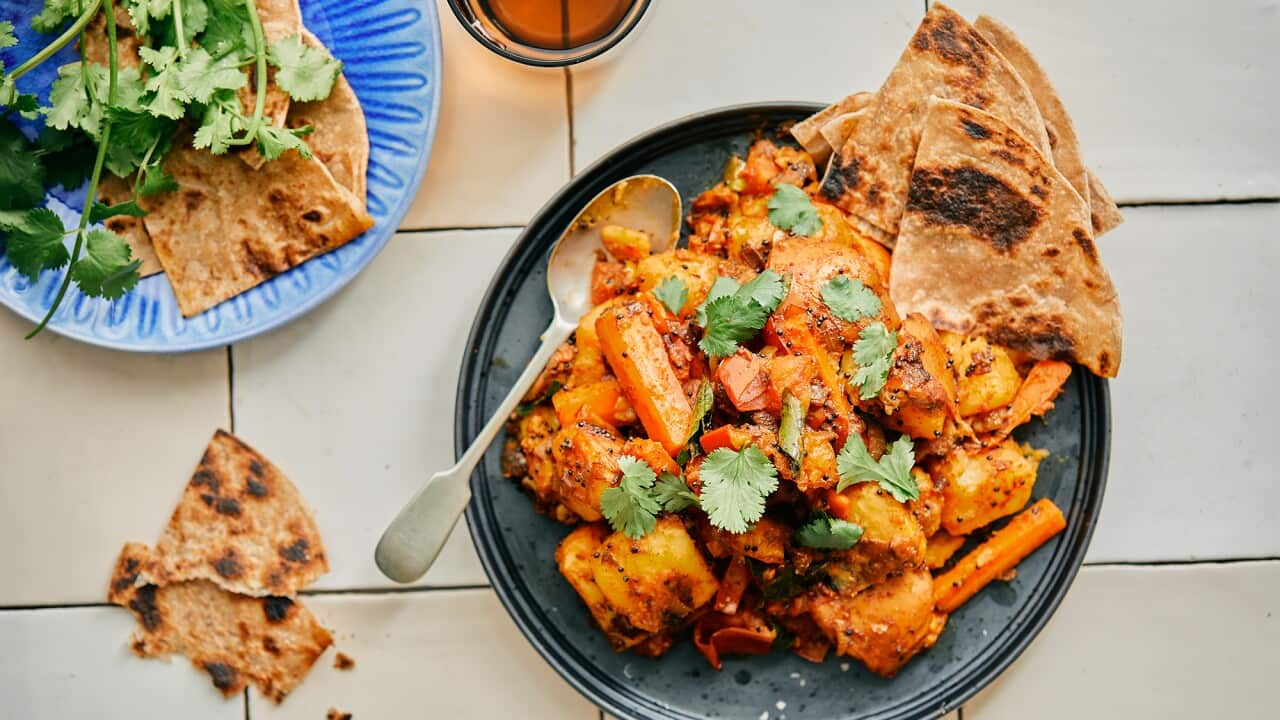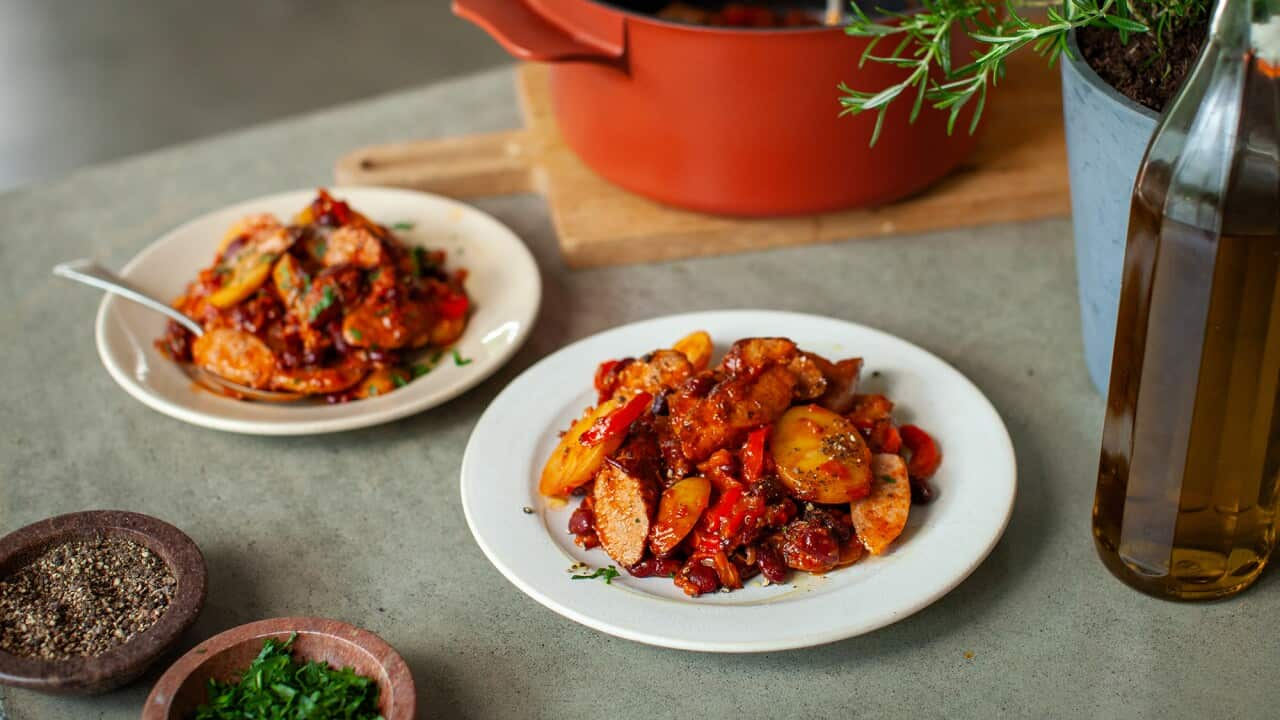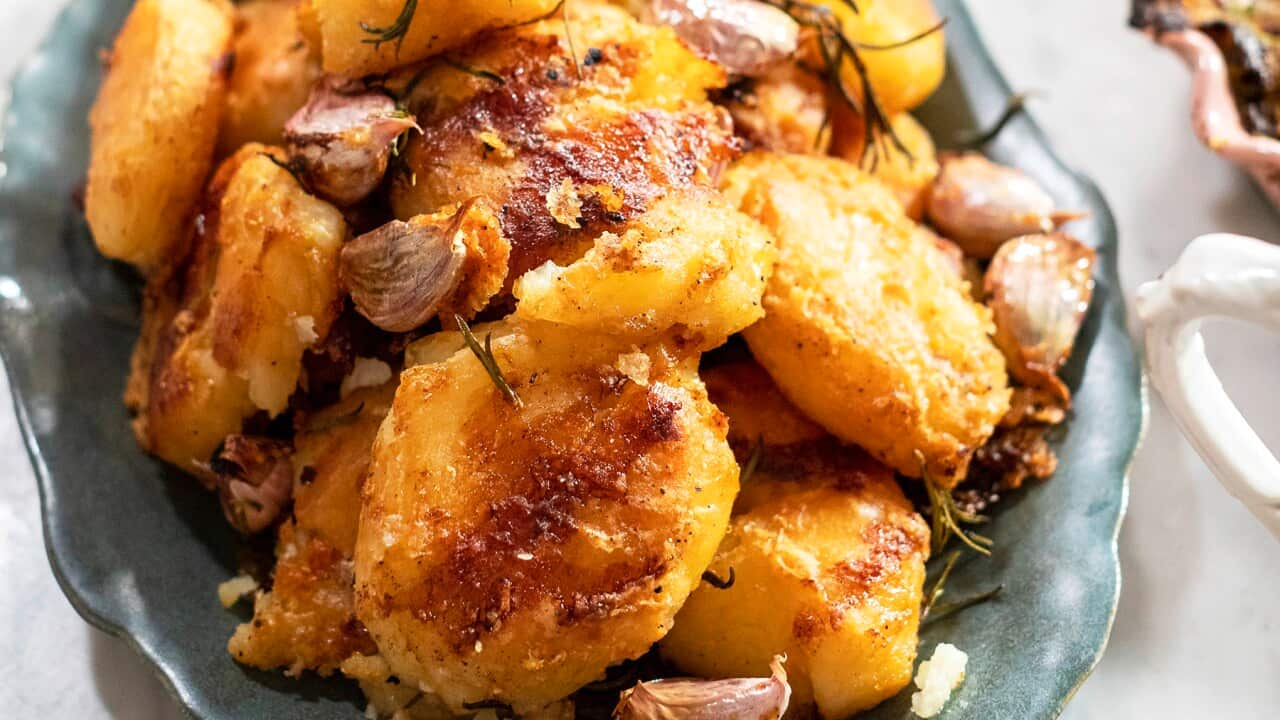makes
16
prep
40 minutes
cook
25 minutes
difficulty
Ace
makes
16
serves
preparation
40
minutes
cooking
25
minutes
difficulty
Ace
level
The traditional twisting and shaping of them may seem a little tricky to start with but follow my instructions and watch and you’ll have it mastered in no time.
Ingredients
- melted butter, to grease
- 1 egg, lightly whisked, to glaze
- flaked almonds or pearl sugar (see Note), to sprinkle
Dough
- 450 g (3 cups) strong bread or pizza flour, plus extra to dust
- 55 g (¼ cup) caster sugar
- 7 g (1 sachet) dried yeast
- 1 tsp ground cardamom
- ½ tsp salt
- 300 ml milk
- 100 g butter, diced
- 1 tsp natural vanilla essence or extract
Almond filling
- 80 g butter, at room temperature
- 50 g (½ cup) almond meal
- 50 g marzipan
- 55 g (¼ cup) caster sugar
- 1½ tsp ground cinnamon
Proving time 1 hour 15 minutes
Instructions
To make the dough, combine the flour, sugar, yeast, cardamom and salt in a large bowl and make a well in the centre. Combine the milk and butter in a small saucepan and heat over low heat for 3–5 minutes or until the milk is lukewarm. Remove from heat, stir in the vanilla and set aside for 5 minutes, stirring occasionally with a fork, until the butter melts. Add to the flour mixture and use a wooden spoon and then your hands to mix to a soft dough.
Turn the dough onto a lightly floured surface and knead for 8–10 minutes or until it is smooth and elastic and springs back when you push your finger into it (see Note).
Brush a large bowl with melted butter to grease. Add the dough turning it to coat lightly with the butter. Cover with plastic wrap and place in a warm, draught-free place for 1 hour or until doubled in size. (See Note).
To make the almond filling, place all the ingredients in a food processor and process until smooth and well combined, scraping down the side of the bowl when necessary. Set aside.
Line two large baking trays with baking paper.
When the dough has doubled in size knock it back by punching it in the centre with your fist. Turn onto a lightly floured surface and knead for 2–3 minutes or until smooth and elastic. Use a lightly floured rolling pin to roll out the dough into a 30 cm x 50 cm rectangle, about 0.5 cm thick. Place the dough on the benchtop so that a long side is closest to you.
Use a palette knife to spread the almond filling evenly over the lower half of the dough. Fold the top third down to cover the filling and then the bottom third up, pressing down firmly.
Use a large, sharp knife to cut the dough into 16 strips, each about 3.5 cm wide. Use the knife to cut each strip in half three-quarters of the way up towards the folded end to make two ‘legs’. Hold a strip at opposite ends and pull gently to stretch slightly. Then twist the two ‘legs’ separately about three times. Tie the two ‘legs’ together in a simple knot and then tuck the opposite end under the knot.
Repeat with the remaining dough strips, placing them about 5 cm apart on the lined trays as they are shaped. Cover with a damp tea towel and set aside in a warm, draught-free place for 25–30 minutes or until risen and the dough no longer springs back when you poke it gently with a finger.
Preheat the oven to 190°C (170°C fan-forced).
Brush the rolls with the whisked egg to glaze and sprinkle with flaked almonds or pearl sugar. Bake the rolls in preheated oven for 25 minutes or until golden and sound hollow when tapped on the base. Serve warm or at room temperature.
Notes
• Pearl sugar (also known as hail or nib sugar) is a coarse white sugar used extensively in European baking. Because it retains its shape (it doesn’t melt during cooking) it adds a lovely textural sweet crunch to pastries, sweet breads and biscuits. Pearl sugar is available at specialty food stores and European-style delicatessens.
• The dough can be kneaded with an electric mixer, fitted with a dough hook, on low speed for 5–8 minutes or until smooth and elastic and comes away from the side of the bowl.
• The dough can be proved in the fridge overnight (in the greased, covered bowl). Stand in a warm, draught-free place for 1–2 hours, or until the dough reaches room temperature, before continuing with the recipe.
• These rolls are best eaten the day they are baked, however they do freeze well. To freeze, wrap individually in plastic wrap, seal them in an airtight container or freezer bag and freeze for up to 3 months. Thaw at room temperature. To reheat, place on a lined baking tray in an oven preheated to 160°C (140°C fan-forced) for 10 minutes or until heated through.
Photography by Alan Benson. Styling by Sarah O'Brien. Food preparation by Tina McLeish. Creative concept by Lou Fay.
Anneka's mission is to connect home cooks with the magic of baking, and through this, with those they love. For hands-on baking classes and baking tips, visit her at . Don't miss what's coming out of her oven via ,, and .
Cook's Notes
Oven temperatures are for conventional; if using fan-forced (convection), reduce the temperature by 20˚C. | We use Australian tablespoons and cups: 1 teaspoon equals 5 ml; 1 tablespoon equals 20 ml; 1 cup equals 250 ml. | All herbs are fresh (unless specified) and cups are lightly packed. | All vegetables are medium size and peeled, unless specified. | All eggs are 55-60 g, unless specified.
The traditional twisting and shaping of them may seem a little tricky to start with but follow my instructions and watch and you’ll have it mastered in no time.

